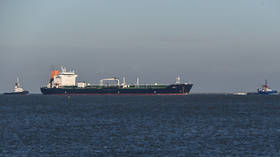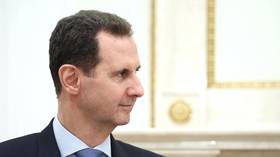Russia ramps up fuel supply to Latin America – Reuters

Moscow has increased the supply of oil products to Latin America in response to Western price caps and embargoes, Reuters reported on Wednesday, citing market sources and data from financial analysis platform Refinitiv Eikon.
The statistics show that two cargoes loaded in April in Russia’s Baltic port of Primorsk with about 73,000 tons of diesel were heading to the port of Guayacan in Chile. According to Refinitiv, in January-April Russia exported about 1.5 million tons of diesel to Latin American countries, mainly to Brazil. The figure represents a significant rise from 211,000 tons supplied to the region in the whole 2022.
For decades Russia has been the main diesel supplier for Europe, where countries are now struggling to meet domestic demand. However, the EU’s embargo on Russian oil products, which took effect on February 5, has resulted Russian diesel being diverted not only to Asia, Africa and the Middle East, but also increasingly to Latin America.
According to Reuters, Russian diesel is gaining market share from the United States, which traditionally accounted for most of Brazil’s diesel imports.
In February the Group of Seven nations, the EU and Australia set price caps at $100 per barrel on Russian oil products that trade at a premium to crude, principally diesel, and $45 per barrel for products that trade at a discount, such as fuel oil and naphtha. In response, Moscow announced it would stop selling oil and petroleum products to countries that support the price caps, and would cut output by 500,000 barrels a day between March and December.
For more stories on economy & finance visit RT's business section












